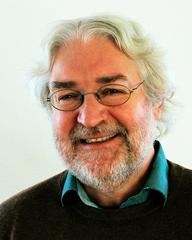URL: https://www.desy.de/news/news_search/index_eng.html
Breadcrumb Navigation
DESY News: DESY´s first ERA Chair to establish quantum computing in Cyprus and the Eastern Mediterranean region
News
News from the DESY research centre
DESY´s first ERA Chair to establish quantum computing in Cyprus and the Eastern Mediterranean region
DESY scientist Karl Jansen has been awarded DESY´s first ERA Chair worth 2.5 million euros, a chair given by the European Research Executive Agency. Jansen will start the QUantum Computing for Excellence in Science and Technology (QUEST) project to establish a new centre for quantum computing at the Cyprus Institute. The centre will work closely with the Centre for Quantum Technologies and Applications (CQTA) at DESY in Zeuthen.

Karl Jansen starts the project QUEST. photo: private
The now-launched QUEST project aims to enable Cyprus to harness the unprecedented potential of quantum computing through the establishment of an excellence hub at the Computation-based Science and Technology Research Centre (CaSToRC) of the Cyprus Institute, led by Karl Jansen.
Constantia Alexandrou of the Cyprus Institute, who also received a Helmholtz International Fellow Award and conducted research at DESY, says: “QUEST will ensure that Cyprus becomes quantum-ready and will serve as a hub, bringing quantum computing to the entire Eastern Mediterranean region.” Karl Jansen adds: “As the principal coordinator of QUEST, I will work with Constantia Alexandrou to establish a research group consisting of an associate professor as well as several postdocs and PhD students in order to enable quantum computing.”
The partnership between QUEST and CQTA aims to develop practical applications, algorithms and methods of quantum computing through common projects, and in this way also bridge the gap between academia and industry. In addition, one of the primary goals of QUEST is to provide hands-on training for students in science and engineering.
The QUEST project will also apply benchmarking, testing, and verification of novel quantum hardware so that these devices can be tested and validated.



